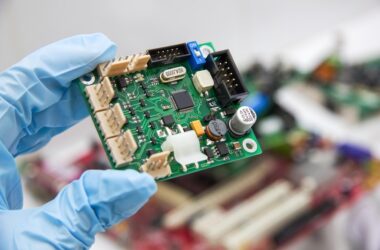In today’s dynamic healthcare landscape, technological advancements, particularly in Artificial Intelligence (AI), are revolutionizing how physicians operate. AI is a game-changer, not just for diagnoses but also for boosting physician productivity and refining healthcare performance. This article explores the profound impact of AI in healthcare, its applications, potential collaborations, and the transformative potential it holds for the industry.
Doctor Efficiency Through Productivity
Physician productivity encompasses various metrics:
Work Relative Value Units (wRVUs)
These gauge a physician’s clinical service output based on the complexity and intensity of their work. Higher wRVUs often signify higher productivity levels.
Patients seen per day
The number of patients a physician attends to daily serves as an indicator of their productivity.
Procedures performed
The volume of tests, surgeries, or procedures conducted by a physician correlates with their productivity levels.
Clinical quality metrics
These include infection rates, readmission rates, patient satisfaction, and adherence to evidence-based care standards, reflecting the quality of care provided.
Physician Performance Indicators
Physician performance is multifaceted:
Clinical skills and knowledge
Assessing a physician’s ability to diagnose accurately, provide suitable treatments, perform procedures competently, and stay updated with medical advancements is crucial.
Patient outcomes
Measuring patient outcomes, including mortality rates, readmissions, complications, and patient satisfaction, gauges the effectiveness of a physician’s treatment.
Communication
A physician’s adeptness in conveying information, listening to patients, and demonstrating empathy greatly influences patient satisfaction and trust.
The Role of AI in Healthcare
AI offers extensive support across multiple healthcare aspects:
Diagnostics and Decision Support
AI algorithms analyze medical images, aiding physicians in accurate diagnoses and minimizing diagnostic errors.
Electronic Health Records (EHR) Management
AI-driven systems streamline administrative tasks related to EHRs, allowing physicians more time for patient care.
Remote Patient Monitoring
AI-enabled devices facilitate remote patient monitoring, enabling real-time data tracking of vital signs and symptoms, enhancing patient care.
Predictive Analytics
AI’s data processing capabilities assist in predicting patient admission rates, optimizing resource allocation, and improving overall performance.
Collaboration and Education
AI fosters collaborative learning among healthcare professionals through virtual platforms, boosting knowledge sharing and patient care.
Unique Challenges and Considerations
Despite AI’s potential, ethical concerns, data privacy, and the need for rigorous validation are crucial for its successful integration into healthcare.
Enhanced Efficiency and Accuracy
AI-driven tools can significantly streamline administrative tasks, like managing electronic health records (EHRs) or automating data entry. By handling these tasks efficiently, physicians can devote more time to direct patient care, improving overall efficiency in healthcare delivery.
Improved Diagnostics and Decision-Making
AI algorithms can swiftly analyze complex medical data, aiding physicians in making accurate diagnoses and treatment plans. This technology minimizes diagnostic errors, leading to better patient outcomes and reducing the chances of unnecessary procedures or treatments. For more information check forbes article.
Remote Patient Monitoring and Predictive Analytics
Remote patient monitoring facilitated by AI-enabled devices allows physicians to track patient health outside traditional healthcare settings. This real-time data helps identify potential health issues early, allowing for timely interventions and preventing complications. Try controlio for remote monitoring.
Predictive analytics powered by AI assists healthcare institutions in forecasting patient admission rates and optimizing resource allocation. This ensures that physicians have the necessary resources to meet patient needs effectively, enhancing overall performance and patient satisfaction.
Conclusion
As AI continues to evolve and integrate into healthcare, a cooperative approach among physicians, institutions, and patients is vital. Embracing AI advancements, along with education and ethical practices, promises a more efficient and collaborative future in healthcare, significantly improving patient outcomes. The transformative power of AI holds the key to a brighter and more effective healthcare landscape.






